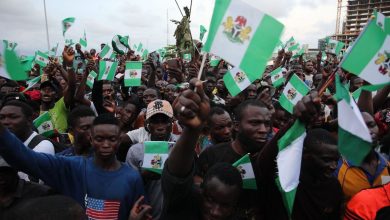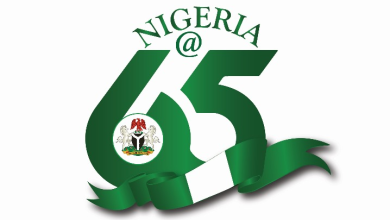Ibrahim Traore’s Rise: Between Revolutionary Zeal and the Realities of Governance
Captain Ibrahim Traore’s emergence as the leader of Burkina Faso in 2023 captured continental and global attention. Ascending to power through a military coup that ousted Lt. Col. Paul-Henri Sandaogo Damiba who had himself come to power via a similar ousting of democratically elected President Roch Marc Christian Kaboré Traore’s rise is a stark reflection of the political fragility in Burkina Faso and West Africa at large.

Since taking the reins, Traore has assumed a persona that straddles revolutionary defiance and pan-African symbolism. His style of leadership marked by assertiveness, anti-colonial rhetoric, and visible rejection of French influence has drawn comparisons to the late Thomas Sankara, Burkina Faso’s iconic leader of the 1980s. Traore’s decision to terminate military agreements with France and seek assistance from Russia is consistent with his broader anti-Western ideology. He has equally championed economic nationalism, notably by nationalizing gold mines long operated by foreign interests, launching ambitious agricultural initiatives, and instituting anti-corruption reforms.
Yet, beneath the revolutionary optics lies a mix of reality and inflated mythmaking. Online platforms are saturated with hyperbolic accounts of his achievements. Videos claim that hunger has been eradicated in Burkina Faso, despite government policy merely targeting 70% food sufficiency by 2027. The real challenges—such as unrelenting jihadist violence and displacement are barely acknowledged by his ardent supporters. In fact, reports indicate that insecurity has worsened since he assumed power.
More concerning, however, is the carefully crafted cult of personality forming around Traore. Widely circulated narratives portray him as a superhuman figure rebuffing U.S. diplomats, miraculously surviving Western assassination plots, eloquently confronting academics at Harvard, and even writing to Pope Leo XIV to condemn imperialism, with the Pope allegedly responding favorably. Most of these stories are not grounded in reality. Some use artificial intelligence to manipulate existing footage such as the Pope’s Vatican address adding voiceovers and fake dialogues. Nonetheless, people, including educated individuals, often take these stories at face value.
This credulity points to a broader challenge in the digital era: the ease with which misinformation, packaged as revolutionary content, can shape public opinion. These narratives, whether orchestrated as part of a deliberate propaganda campaign or a spontaneous outpouring of admiration, distort reality. Some speculate that these efforts are aligned with Russian influence strategies in Africa, though the amateurish execution of the content casts doubt on Moscow’s direct involvement.
But beyond the issue of disinformation lies a more enduring concern the effectiveness and sustainability of Traore’s vision for Burkina Faso and, by extension, for Africa. While anti-colonial rhetoric and symbolic independence from foreign powers hold value, they are insufficient in addressing the deep-seated structural issues plaguing African governance and development.
History offers cautionary tales. Leaders like Kwame Nkrumah, Muammar Gaddafi, Robert Mugabe, and Gamal Abdel Nasser once embodied similar pan-African fervor. They identified Western imperialism as the root cause of Africa’s woes and sought to forge an independent path. However, their legacies are mixed. While they made important strides, they often failed to strengthen domestic institutions legal, economic, and political that would have sustained long-term development and safeguarded national interests.
In the absence of strong institutions, liberation struggles can quickly morph into cycles of corruption, incompetence, and economic failure. Nigeria provides a striking example. Foreign oil companies like Shell, Total, and Chevron are often blamed for exploitation and environmental degradation, yet in countries like Scotland, where the same companies operate, such issues are minimal. The difference lies in the strength and integrity of regulatory institutions. In Nigeria, regulatory agencies have been compromised by corruption, creating a permissive environment for foreign firms to flout laws.
The decay of public institutions is evident in the trajectory of Nigeria’s own National Petroleum Corporation (NNPC), which failed to transform into a globally competitive oil and gas company like Russia’s Rosneft or Gazprom. Despite decades of government backing, it remains plagued by inefficiency and mismanagement. Such is the risk Traore faces if he does not fortify the institutions now charged with managing the nation’s wealth, including SOPAMIB, which has taken control of gold operations in Burkina Faso.
Institutional weakness also explains the decline of formerly robust colonial-era services across Africa—telecommunications, postal services, and electricity. These systems, which were once efficient under colonial administration, have struggled under indigenous management due to poor governance, lack of oversight, and the failure to nurture a professional civil service.
Therefore, while Traore’s economic reforms and nationalist posture may appear promising, their longevity depends on a serious commitment to institution-building. Nationalizing gold mines or constructing state-run refineries may shift ownership, but without accountability and operational capacity, they could become liabilities rather than assets.
Finally, Africa’s continued tendency to locate its failures in the actions of colonial powers without addressing internal dysfunction is counterproductive. As legal scholar Dr. Samuel Okoro notes in his comparative study of oil regulations in Nigeria and the UK, the colonial-era laws given to Nigeria were identical to those in Britain. Yet, while Britain effectively enforced its laws through strong institutions, Nigeria’s weak and compromised agencies failed to deliver similar results.
Traore must therefore reflect on which of Burkina Faso’s chains are colonial legacies and which are self-imposed. If he fails to make that distinction, the revolutionary promise of his leadership risks becoming just another chapter in Africa’s long narrative of squandered potential. True liberation lies not just in rebuffing external dominance, but in cultivating a culture of governance rooted in competence, integrity, and institutional resilience.



